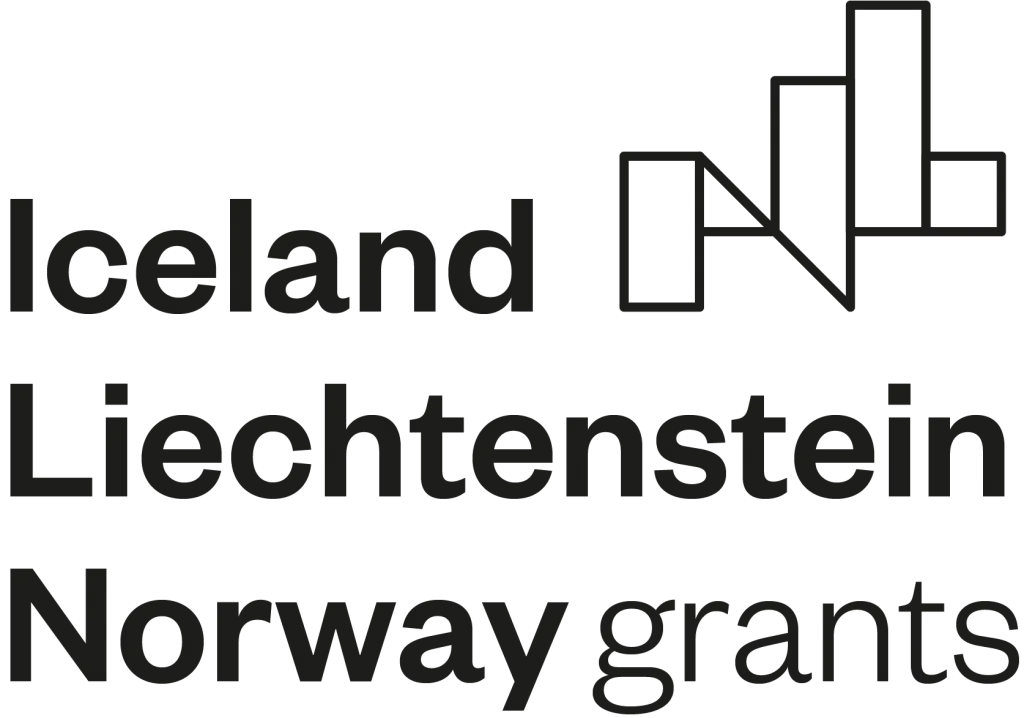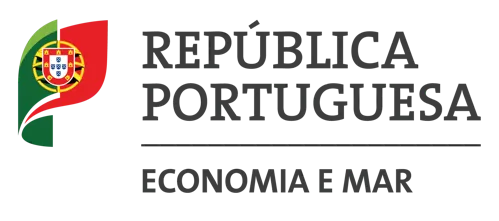Financed by:
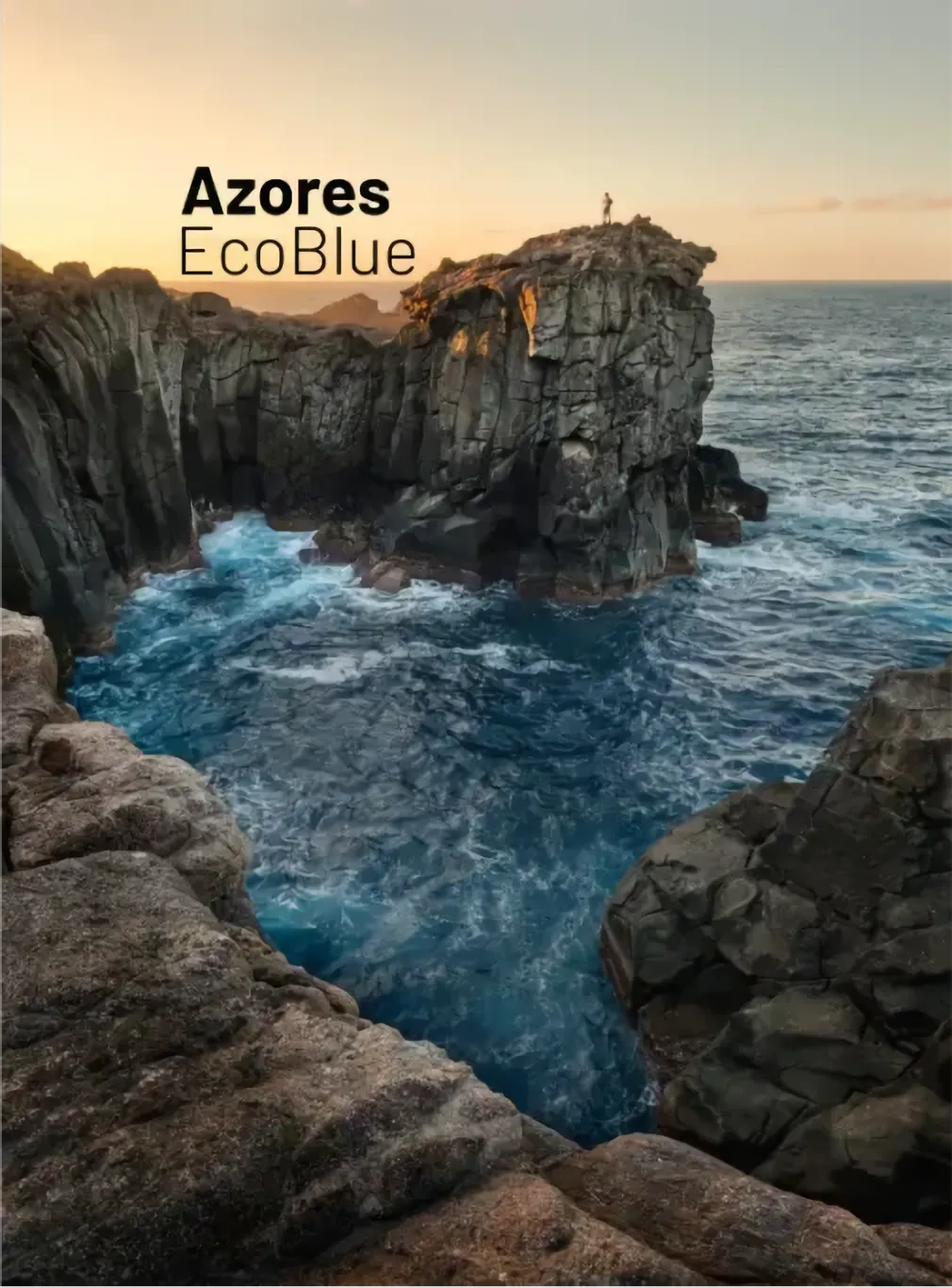
KNOW MORE
ABOUT THE PROJECT
Marine litter is one of the main enviromental problems with which the oceans are confronted. Continental Portugal and the Autonomous Region of Azores share common challanges, like policy over the sea and the sea in a scenario of waste, given the archipelago of Azores is also not immune to this global problem. There have been studies done to quantify/classify the marine litter in Azores.
Considering the socioeconomical role played by the fishing industry of the Azores, the project is an oportunity to use and develop new and innovative raw materials, transforming marine litter, which is presently little or not at all valued, into a market of excellency, as its "supplier".
To answer these challanges, the project will utilize to their maximum the studies already done and in development by the Universities of Azores and Minho, in their R&D Centres. And, in conjunction with local communities, will collect marine litter and beach residues to develop new threads and fibers for new subproducts. The main activities include the analysis, caracterization, quantification of residues, collection, triage, residue processing, scientific studies about the fibers obtained, development of threads and fibers, and their transformation into fabric and insulating blankets.
Waste will be quantified, analysed, and afterward, presented in a data sharing platform of statistics and scientific studies.
Considering the socioeconomical role played by the fishing industry of the Azores, the project is an oportunity to use and develop new and innovative raw materials, transforming marine litter, which is presently little or not at all valued, into a market of excellency, as its "supplier".
To answer these challanges, the project will utilize to their maximum the studies already done and in development by the Universities of Azores and Minho, in their R&D Centres. And, in conjunction with local communities, will collect marine litter and beach residues to develop new threads and fibers for new subproducts. The main activities include the analysis, caracterization, quantification of residues, collection, triage, residue processing, scientific studies about the fibers obtained, development of threads and fibers, and their transformation into fabric and insulating blankets.
Waste will be quantified, analysed, and afterward, presented in a data sharing platform of statistics and scientific studies.
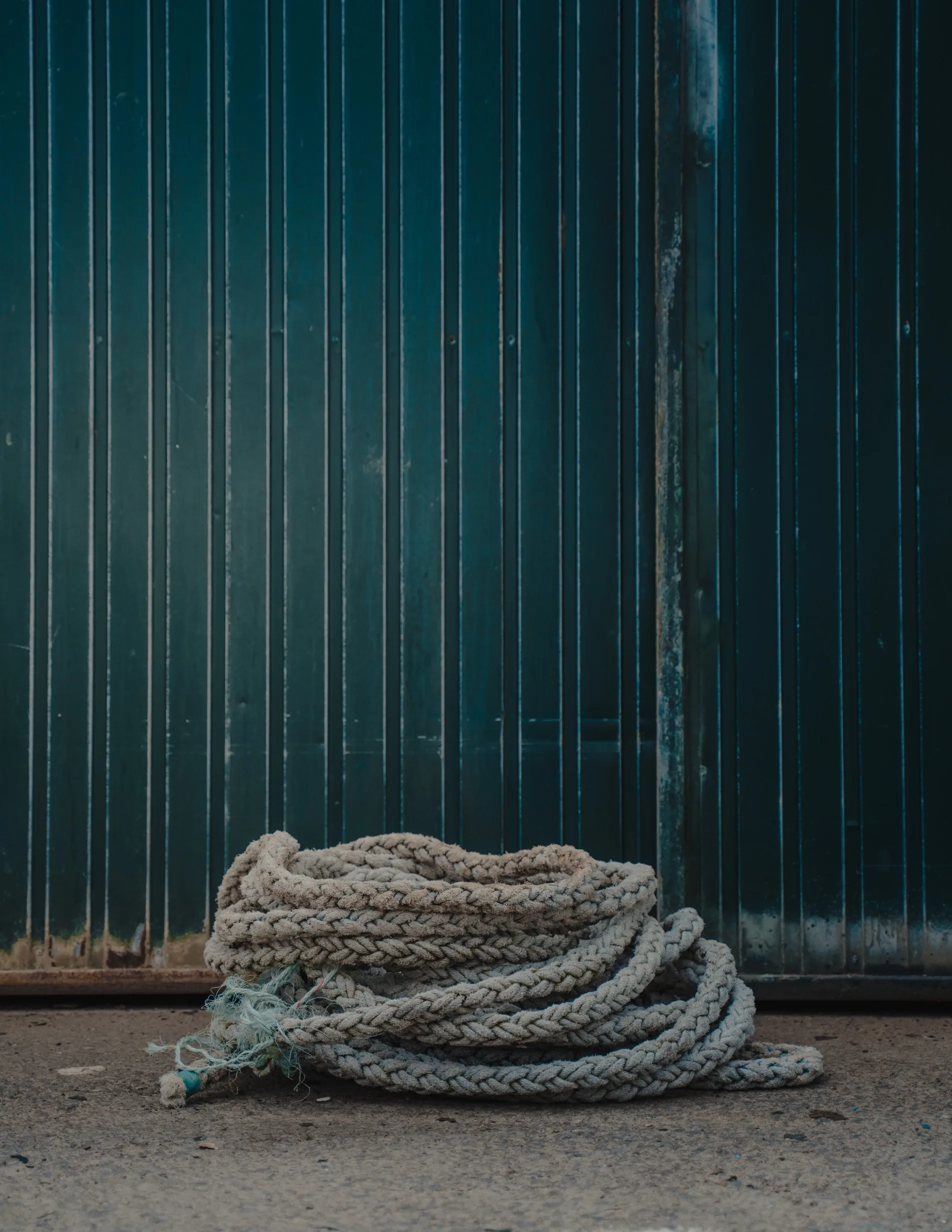
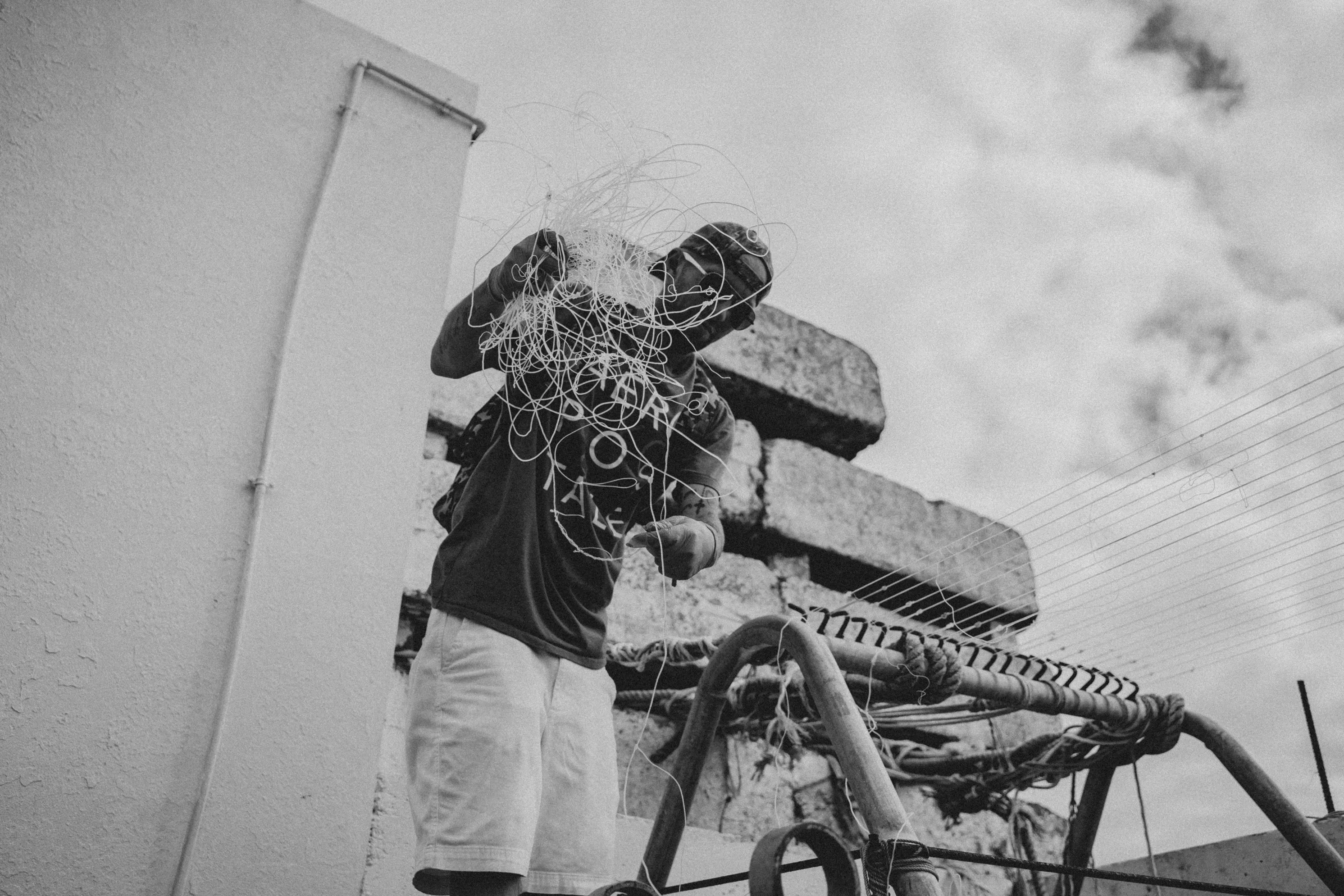
As already mentioned, the project intends to transform waste to create threads as raw material for new fabrics and fibers for the development of an insulation blanket. With these and other waste from the sea, a prototype model of an eco-cabin with the new products will be developed. The project will benefit consumers looking for solutions within ecological and recycled eco-design. This eco-cabin pilot prototype can be replicated in other regions that could benefit from its business model, applicable on a global scale. The prototype to be presented constitutes a basis for the development of research work. Simulations and experimental tests of thermal, acoustic and natural lighting tests will be carried out on this prototype.
Scientific studies have already started and are based on the raw materials identified by the R&D centers with the highest percentage of those collected at sea in the Autonomous Region of the Azores. We were able to identify three categories: Silks, cables and algae (weeds). Based on this identification, tests are already being developed in order to create a fiber and thread that will be integrated into the textile, construction and other sectors such as furniture and home accessories. The pilot eco-cabin will be a showroom for the application of construction solutions experimentally validated in the laboratory and in component analysis test cells, as well as a presentation of new craft techniques introduced in construction and home accessories based on marine “trash”.
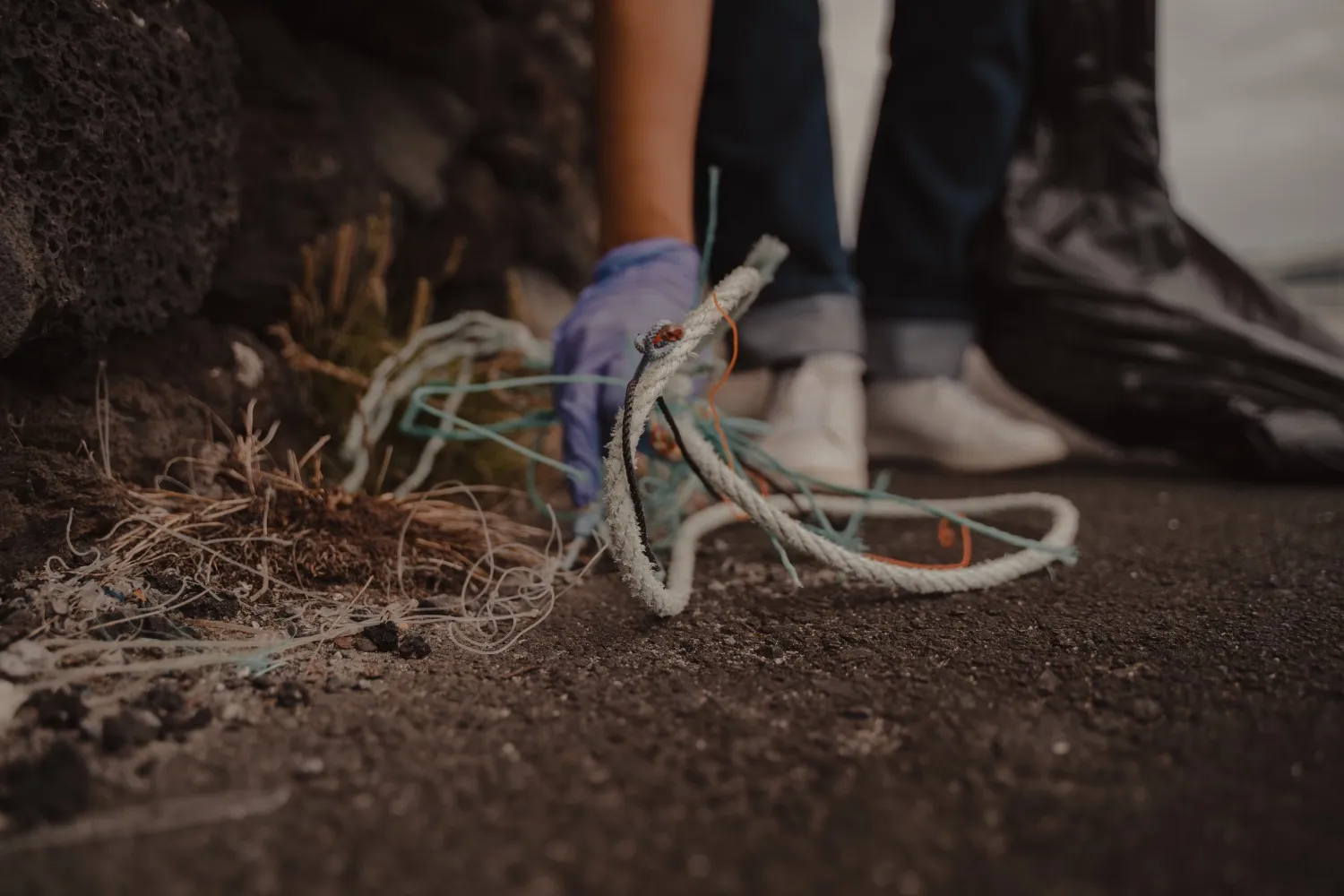
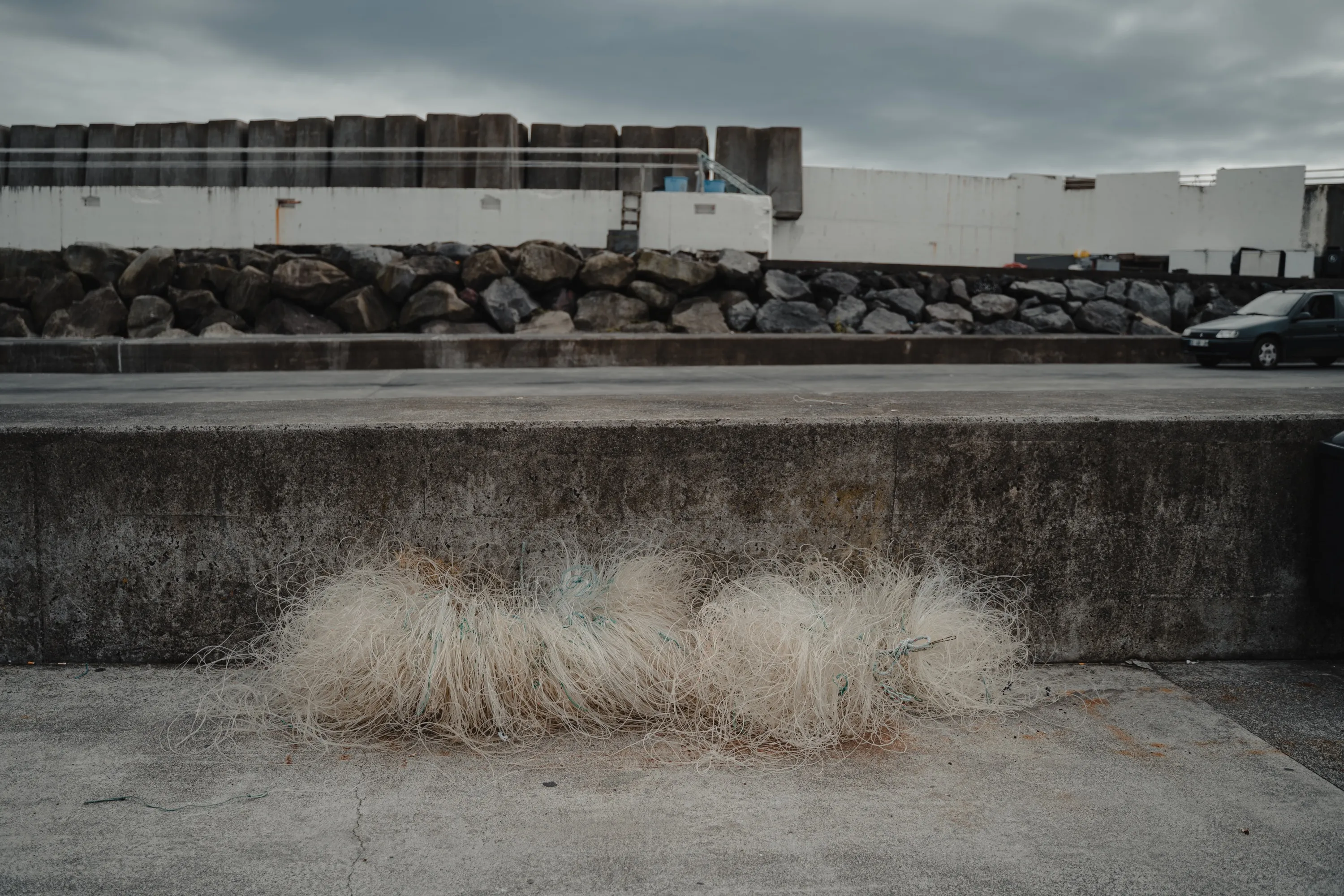
The eco-cabin is based on a constructive system combining heavy local materials as anchorage elements, wood for structure and recycled materials for insulation, panels and shading. The final configuration of the eco-cabin model will be presented in the last semester of the project and it will be unique. With this we intend to develop a base model for sustainable construction, having as analysis/pilot project Terceira Island - Azores and its artisanal culture from marine litter.
In a first phase, analyzing its main environmental problems, such as surpluses from fishing activity, infesting algae and how they can be recreated in a value-added product. Economic studies will be carried out in advance, simulating the structural, thermal, natural lighting and acoustic behavior of the constructive elements and experimental validation of the functional performance in test cells;
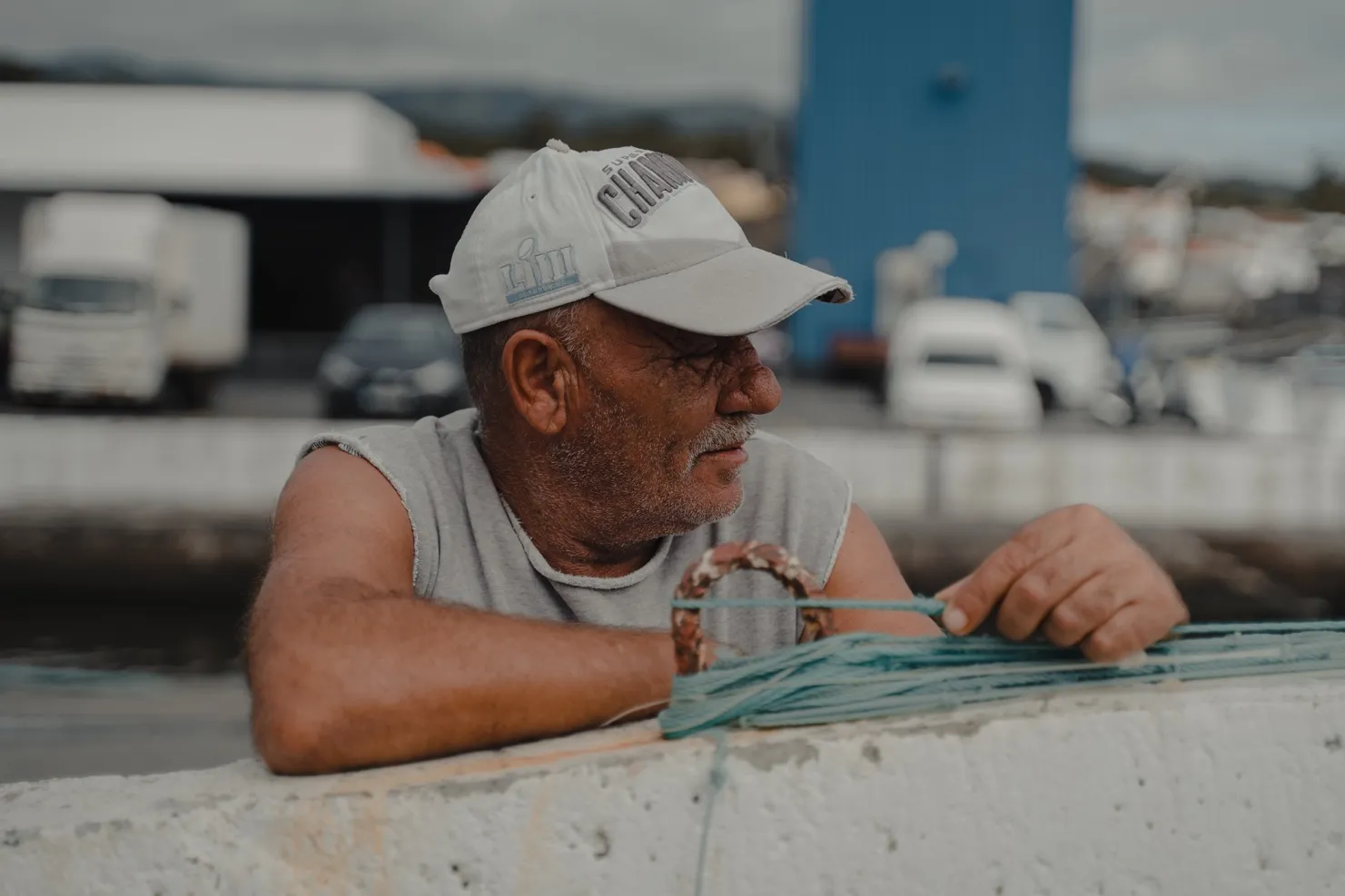
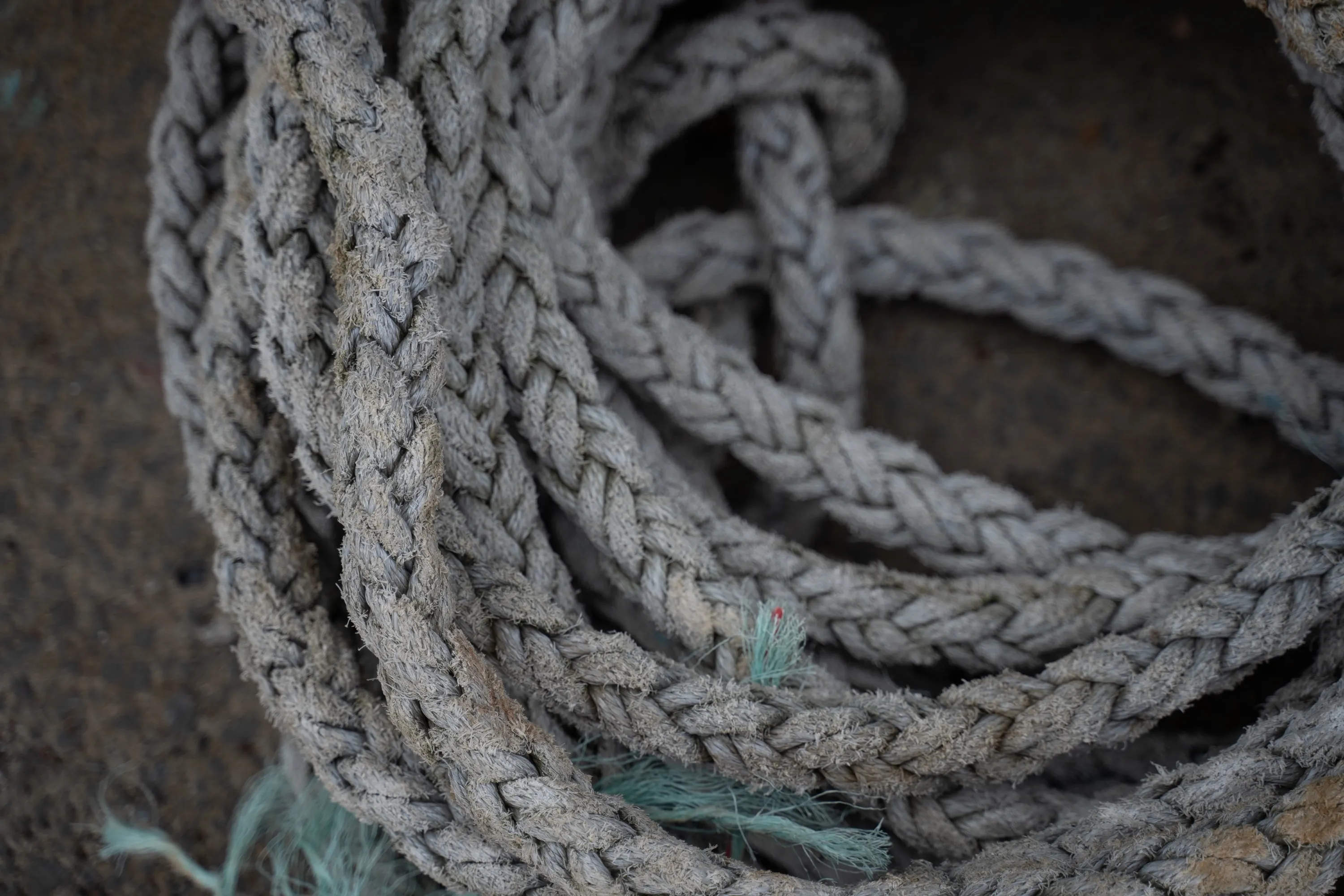
In view of this analysis and with the scientific knowledge acquired, this base study, in parallel with existing and acquired laboratory equipment for the respective tests, will allow the application of a methodology aimed at the design and construction of eco-cabins that can be flexible enough to be installed in different climatic regions, predominantly coastal. The research and construction model can be based on the analysis and parameterization applied in the Azores EcoBlue pilot eco-cabin. In this way, the parameterization and circular management structure applied in this project can be developed by other creatives, such as architects, engineers and designers.
As a consequence of the work carried out, we came across the existence of large amounts of Rugulopteryx okamurae algae, an infesting algae. The U.M. put considerable effort into assessing the potential use of these highly problematic algae for the Azorean environment.
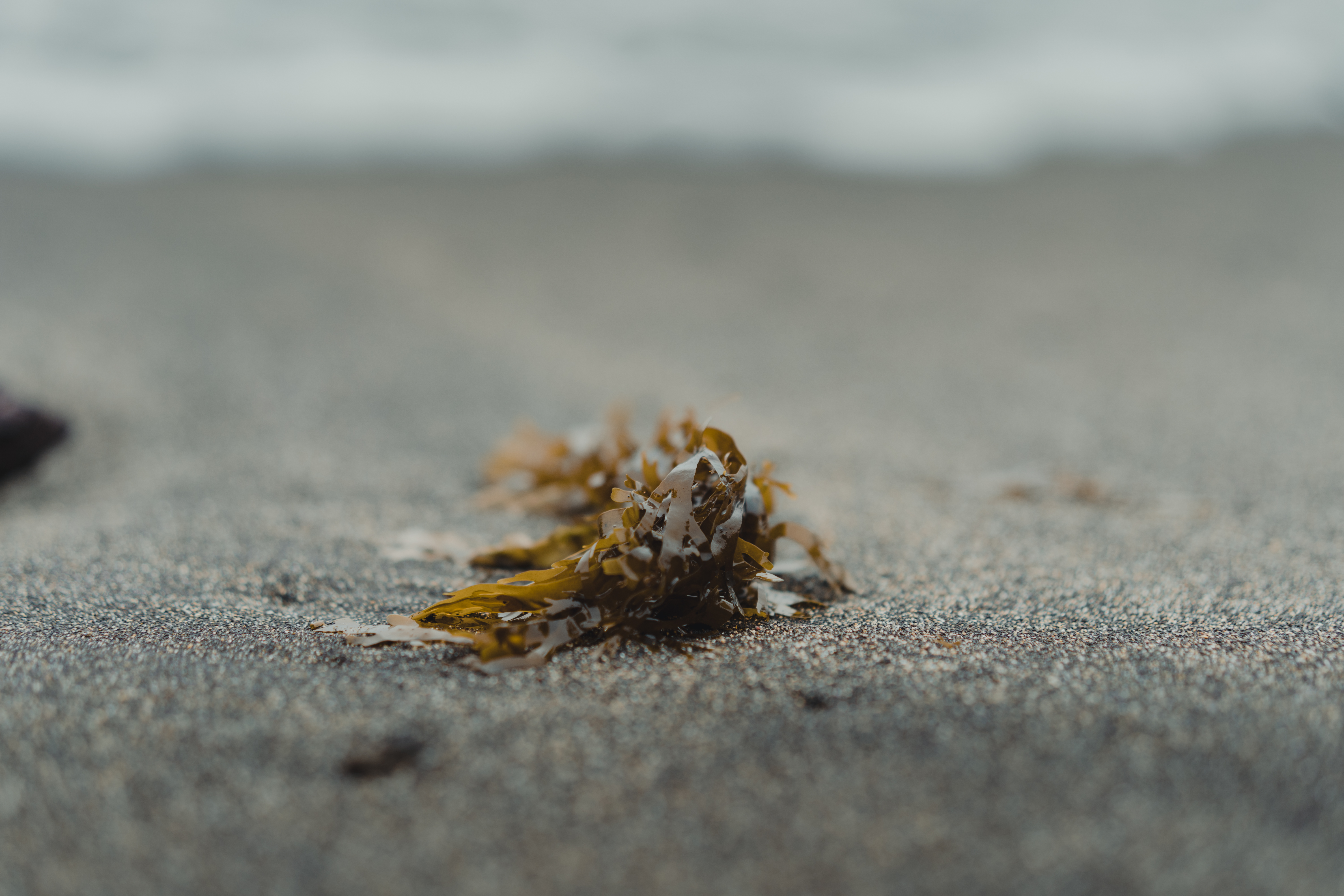
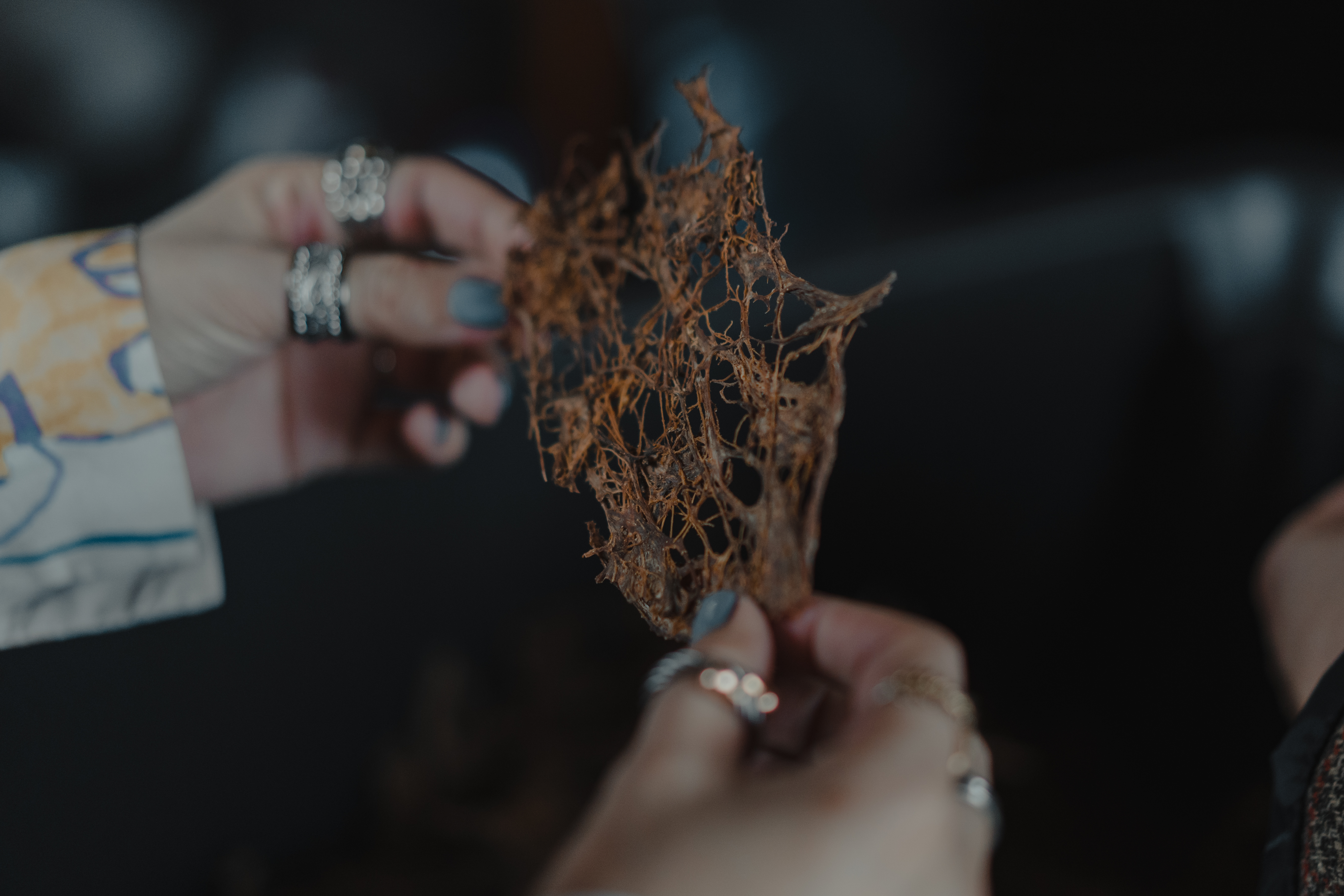
Preliminary studies were carried out showing different possibilities of using the previously mentioned algae and several waste materials collected in Azores. In order to accomplish the objectives of this project, a network of researchers is being built, interested in joining forces and sharing experiences.
PROJECT OBJECTIVES
- Development of new raw materials and new by-products, using marine and beach litter and waste from marine activities as raw material (polyetilene, nets, rope, polyamide);
- 4 new products/ technologies developed (1 thread; 1 insulation material; 4 exterior design pieces; 1 prototype Eco-Cabin);
- 40 annual tons of marine litter collected for reuse or recycling;
- 20 annual tons of marine litter reused or recycled;
- Reinforcing of bilateral relations between donor countries, from a perspective of sharing and transfering knowledge;
- Contribution to the UN Agenda 2030, namely to following objectives:
- Sustainable cities and communities;
- Responsible consumption and production;
- Climate action;
- Life below water;
- Partnerships for the goals.
- Dissemination of results with the realization of international events;
- Collection and development of sub-products from invasive algae species Rugulopteryx okamurae;
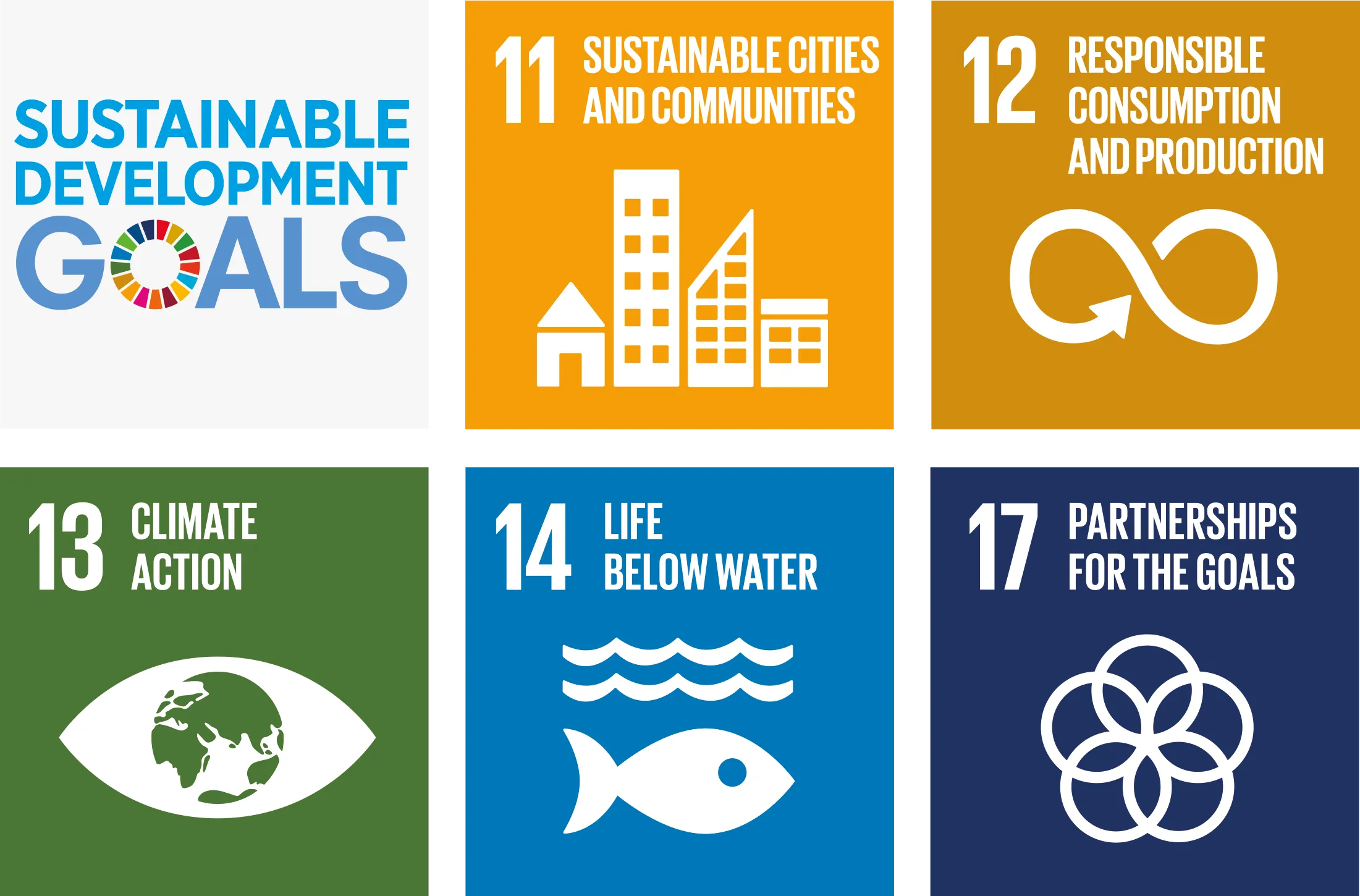
Financing under the Blue Growth Programme, through the Agreement on the European Economic Area (EEA), Iceland, Liechtenstein and Norway are partners in the internal market with the Member States of the European Union.As a way of promoting a continuous and balanced strengthening of economic and trade relations, the parties to the EEA Agreement have established a multi-year Financial Mechanism, known as EEA Grants.The EEA Grants aim to reduce social and economic disparities in Europe and strengthen bilateral relations between these three countries and the beneficiary countries.For the period 2014-2021, a total contribution of €2.8 billion has been agreed for 15 beneficiary countries. Portugal will benefit from an amount of 102.7 million euros.Know more at eeagrants.gov.pt
Project financed by Iceland, Liechtenstein and Norway, through the EEA Grants.
